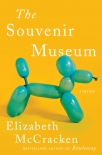An American Tragedy, Theodore Dreiser [best business books of all time txt] 📗

- Author: Theodore Dreiser
Book online «An American Tragedy, Theodore Dreiser [best business books of all time txt] 📗». Author Theodore Dreiser
“The love of Jesus saves me whole,
The love of God my steps control,”
she sang resonantly, if slightly nasally, between the towering walls of the adjacent buildings.
The boy moved restlessly from one foot to the other, keeping his eyes down, and for the most part only half singing. A tall and as yet slight figure, surmounted by an interesting head and face—white skin, dark hair—he seemed more keenly observant and decidedly more sensitive than most of the others—appeared indeed to resent and even to suffer from the position in which he found himself. Plainly pagan rather than religious, life interested him, although as yet he was not fully aware of this. All that could be truly said of him now was that there was no definite appeal in all this for him. He was too young, his mind much too responsive to phases of beauty and pleasure which had little, if anything, to do with the remote and cloudy romance which swayed the minds of his mother and father.
Indeed the home life of which this boy found himself a part and the various contacts, material and psychic, which thus far had been his, did not tend to convince him of the reality and force of all that his mother and father seemed so certainly to believe and say. Rather, they seemed more or less troubled in their lives, at least materially. His father was always reading the Bible and speaking in meeting at different places, especially in the “mission,” which he and his mother conducted not so far from this corner. At the same time, as he understood it, they collected money from various interested or charitably inclined business men here and there who appeared to believe in such philanthropic work. Yet the family was always “hard up,” never very well clothed, and deprived of many comforts and pleasures which seemed common enough to others. And his father and mother were constantly proclaiming the love and mercy and care of God for him and for all. Plainly there was something wrong somewhere. He could not get it all straight, but still he could not help respecting his mother, a woman whose force and earnestness, as well as her sweetness, appealed to him. Despite much mission work and family cares, she managed to be fairly cheerful, or at least sustaining, often declaring most emphatically “God will provide” or “God will show the way,” especially in times of too great stress about food or clothes. Yet apparently, in spite of this, as he and all the other children could see, God did not show any very clear way, even though there was always an extreme necessity for His favorable intervention in their affairs.
Tonight, walking up the great street with his sisters and brother, he wished that they need not do this any more, or at least that he need not be a part of it. Other boys did not do such things, and besides, somehow it seemed shabby and even degrading. On more than one occasion, before he had been taken on the street in this fashion, other boys had called to him and made fun of his father, because he was always publicly emphasizing his religious beliefs or convictions. Thus in one neighborhood in which they had lived, when he was but a child of seven, his father, having always preluded every conversation with “Praise the Lord,” he heard boys call “Here comes old Praise-the-Lord Griffiths.” Or they would call out after him “Hey, you’re the fellow whose sister plays the organ. Is there anything else she can play?”
“What does he always want to go around saying, ‘Praise the Lord’ for? Other people don’t do it.”
It was that old mass yearning for a likeness in all things that troubled them, and him. Neither his father nor his mother was like other people, because they were always making so much of religion, and now at last they were making a business of it.
On this night in this great street with its cars and crowds and tall buildings, he felt ashamed, dragged out of normal life, to be made a show and jest of. The handsome automobiles that sped by, the loitering pedestrians moving off to what interests and comforts he could only surmise; the gay pairs of young people, laughing and jesting and the “kids” staring, all troubled him with a sense of something different, better, more beautiful than his, or rather their life.
And now units of this vagrom and unstable street throng, which was forever shifting and changing about them, seemed to sense the psychologic error of all this in so far as these children were concerned, for they would nudge one another, the more sophisticated and indifferent lifting an eyebrow and smiling contemptuously, the more sympathetic or experienced commenting on the useless presence of these children.
“I see these people around here nearly every night now—two or three times a week, anyhow,” this from a young clerk who had just met his girl and was escorting





Comments (0)